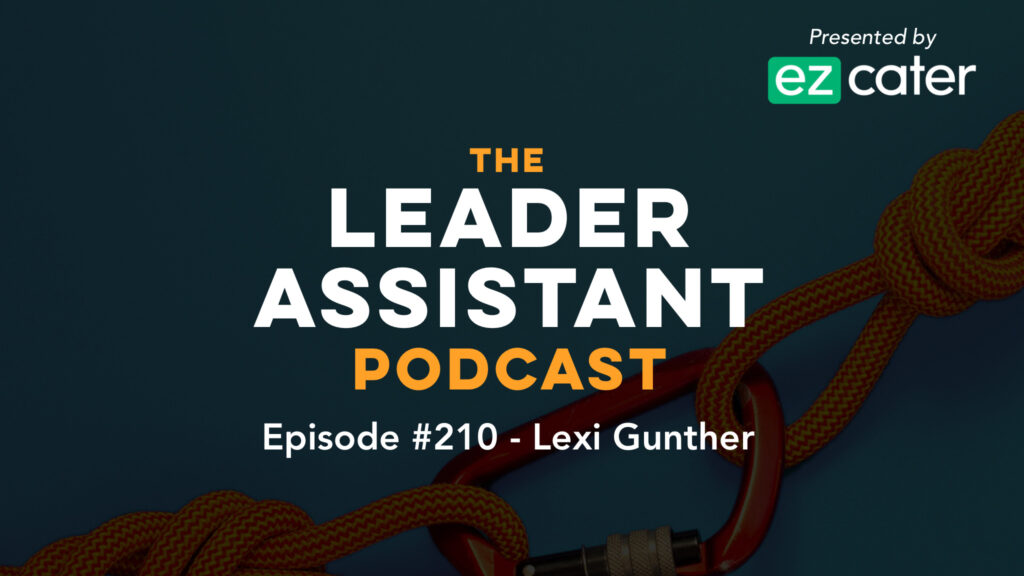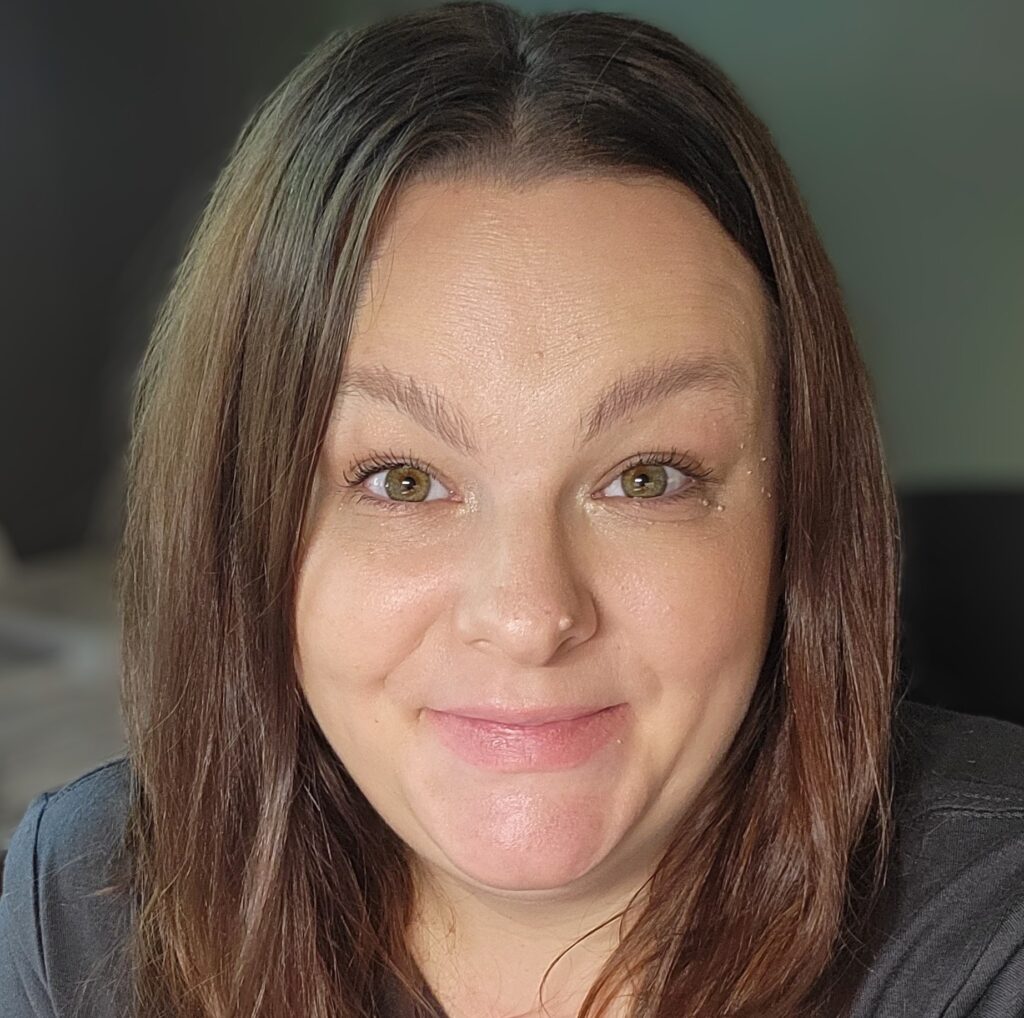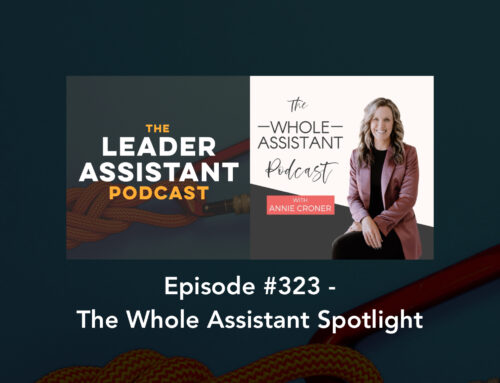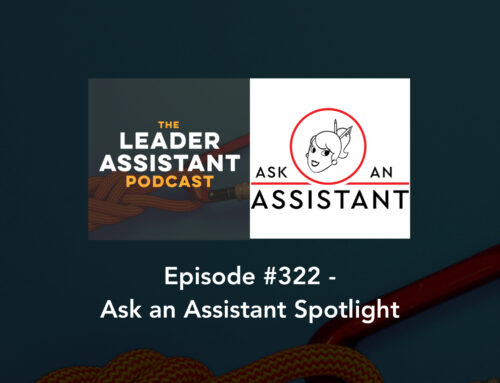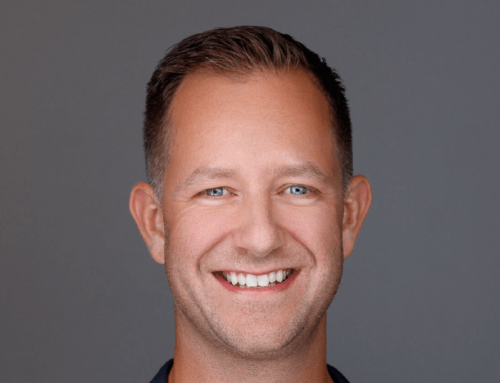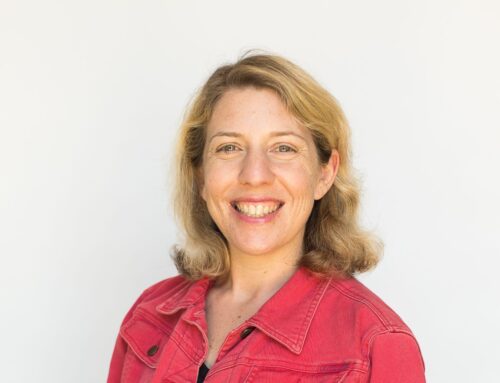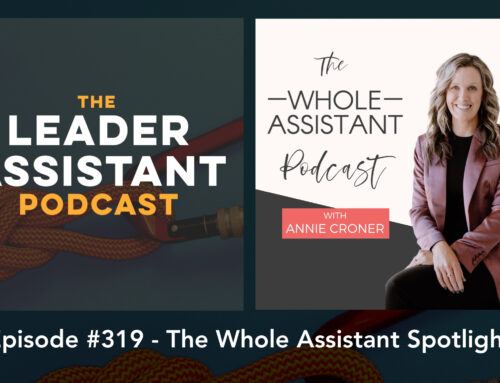Lexi Gunther went from being a high school dropout to being a well-paid, EA Team Lead. She has been an EA and thought partner since 2009 and currently works at Cedar, a health-tech company, where she manages the Executive Support Team and is the Executive Assistant to the Head of Product.
In this episode, Lexi talks about working with international teams, transitioning from an executive assistant to a manager of EAs, and she also shares her experience moving into the software industry.
LEADERSHIP QUOTE
Leadership isn’t about having all the right answers. It’s about having all the right questions.
– Brené Brown
CONNECT WITH LEXI
ABOUT LEXI
Lexi Gunther has been an Executive Assistant and thought partner since 2009. She began her career at a non-profit organization and has since worked for both large public companies and small private companies. She currently works at Cedar, a health-tech company, where she manages the Executive Support Team and is the Executive Assistant to the Head of Product.
–––
THE LEADER ASSISTANT PODCAST IS PRESENTED BY EZCATER
ezCater is the nation’s most trusted provider of corporate food solutions — the best way for companies to order food for daily employee lunches, meetings, and events of any size or budget. ezCater’s simple-to-use platform provides a network of over 100,000 restaurants nationwide, business-grade reliability, food spend management tools, and 24/7 support from their highly trained customer service team.
To explore corporate food solutions or place a catering order, visit ezcater.com.
–––
THE LEADER ASSISTANT PREMIUM MEMBERSHIP
To learn more about how you can join growth-minded Leader Assistants, check out our Leader Assistant Premium Membership for ongoing training, coaching, and community.
THE LEADER ASSISTANT BOOK
Download the first 3 chapters of The Leader Assistant: Four Pillars of Game-Changing Assistant for FREE here or buy it on Amazon and listen to the audiobook on Audible. Also, check out the companion study guide, The Leader Assistant Workbook, to dig deeper.
LEADER ASSISTANT LIVE EVENTS
Check out our constantly updated schedule of events for admins and assistants at LeaderAssistantLive.com.
JOIN THE FREE COMMUNITY
Join the Leader Assistant Global Community for bonus content, job opportunities, and to network with other assistants who are committed to becoming leaders!
SUBSCRIBE
Subscribe to The Leader Assistant Podcast so you don’t miss new episodes!
You can find the show on Apple Podcasts, Spotify, Google Podcasts, Pandora, and Stitcher.
Join my email list here if you want to get an email when a new episode goes live.
LEAVE A REVIEW
If you’re enjoying the podcast, please take 2 minutes to rate and review the show on Apple Podcasts here. Each review helps me stay motivated to keep the show going!
—
EPISODE TRANSCRIPT
Lexi Gunther 0:00
Hi, this is Lexi Gunther. Today’s leadership quote is from Brene Brown. Leadership isn’t about having all the right answers. It’s about having all the right questions.
Podcast Intro 0:14
The Leader Assistant Podcast exists to encourage and challenge assistants to become confident game changing leader assistants.
Jeremy Burrows 0:29
With so much on your plate, wouldn’t it be nice if ordering food for the office were easy and reliable. My friends at easy cater our workplace catering pros helping you find food for everything from daily employee meals to staff meetings and special events. With easy caterers network of over 100,000 restaurants nationwide, you’ll have a huge variety of options near you for any group size, dietary need or budget. Your food arrives on time as ordered all supported 24/7 by easy caterers team of experts visit easycater.com/leaderassistant to find out more. Hey friends, thanks for tuning in to The Leader Assistant Podcast. Welcome to Episode 210 That’s right 210 You can check out the show notes at leaderassistant.com/210 leaderassistant.com/210. And today I am speaking with Lexi Gunther Lexi is in Illinois. Is that right? Lexi? Yep, that’s right. And what part of Illinois?
Lexi Gunther 1:35
So I’m about an hour west of Chicago.
Jeremy Burrows 1:38
Nice, are you from that area? Or?
Lexi Gunther 1:41
I am I grew up a little bit closer to Chicago in the western suburbs. And then, uh, just about well, this summer, actually, we moved away out to the cornfields. So a little bit further away now, but it’s nice and quiet.
Jeremy Burrows 1:55
Awesome. Do you have chickens or cows or anything like that yet?
Lexi Gunther 1:58
Nothing exciting like that. Yeah, just a family to wrangle.
Jeremy Burrows 2:03
Awesome. Tell us a little bit about your family, kids dogs.
Lexi Gunther 2:06
Yeah. So my husband and I have been married for almost 11 years. And we have three kids. We have a 17 year old daughter, a five year old son. And then our littlest is eight months old and eight month old daughter’s little white, the spread,
Jeremy Burrows 2:21
spread. And then
Lexi Gunther 2:22
we have one dog who’s four years old and a cat who’s six months old. So we’re you know, in the thick of it with all the things.
Jeremy Burrows 2:32
That’s great. Well, what what is your favorite your family’s favorite thing to do?
Lexi Gunther 2:37
Oh, that’s a good question. I mean, my personal favorite thing to do is Yoga. But that’s my own quiet time where you get away from all the craziness. But you know, in the in the fall out here, we love to go to like the pumpkin festivals. And you know, there’s a lot of like hay rides, and just fun things to do in the fall when the weather is comfortable for the you know, couple months that we have nice weather.
Jeremy Burrows 3:03
Yeah. Yeah, the Midwest is beautiful in the fall. So it’s good. Good time for Midwest.
Lexi Gunther 3:10
Yeah, I tell everybody that winter really lasts for like six months here. And then we get, you know, a month of spring a couple of months of summer, a month of fall. And then we’re back to the winter.
Jeremy Burrows 3:21
Yeah. Awesome. Well, thanks for being on the show. Let’s talk a little bit about your professional journey. Yeah. How did you end up being an assistant and kind of tell us a little bit about your, your history?
Lexi Gunther 3:35
Yeah, so my path is a little bit different than others. When I was 16, I actually dropped out of high school. And right away started working a full time job as like one of my friend’s parents owned a business. And so I was doing some data entry for them. A few years later, when I was 20, I found myself pregnant and single, and living with my mom in a small two bedroom apartment, which was not ideal. And at that time, was doing a small like, part time receptionist thing at a country club. The country clubs here close in January because of winter and can’t do much fun stuff. So I actually took that opportunity. My daughter was born in January. So I took that opportunity to just be home with her and kind of figure out what the heck I’m doing with my life. So when she was a year old, I was like, You know what, I need to find something and I was this will age me, but I was going through the paper, and I found an ad in the paper for a receptionist position and I called went in for an interview. And it was at a nonprofit organization. And so I interviewed with the manager and she hired me on the spot and she said you know you have a lot of potential and I am going to hire you but you need to go get your GED within the next you know, 60 days or something. Wow. So that was really cool because I you know, I kept saying like, Oh, I’m gonna do it, I’m gonna do it, I’m gonna do it. And then you never do it if you don’t have that push, you know. So I went and got my GED. And she came back to me afterwards and said, I wouldn’t have fired you, if you didn’t get it, I just knew you wouldn’t go get it if I didn’t give you that push. So got that done. And then, you know, within a year was promoted to administrative assistant. And then, I mean, at this point I was making, I think, like $12 an hour. And it’s so crazy to think back to, you know, your very first jobs and how much you make. And somehow on that I was able to get a one bedroom apartment for me and my daughter. And then I got to kind of got to a point where I didn’t feel like there was much more to do, it was a really small nonprofit, and loved the company and loved their mission. But I needed something more. And so now switched to Craigslist, also ageing me, found my next job, their administrative assistant to the president of an IT recruiting company. And I grew so much in this role. Within two years, I was promoted to be his executive assistant and right hands, but I grew some I mean, he gave me He never said no to me. So whether it was you know, making coffee or ordering office supplies, or designing our logo and building our website and writing blogs and going to client meetings. During the time I worked there, he had two kids and I ran the office both times he was out for a week, or he would go hunting for a week, and I would run the office when he was out. And you know, to step into the shoes of the President was just really, really a really good growth experience for me. From there, I kind of took another there were a couple jobs that you know, I was there for five years, and it was leaning more towards the recruiting side, which I wasn’t, you know, I’m good at it, but I don’t love it. And so took another two other EAA jobs in finance and consulting. And during that time, my husband and I suffered some infertility issues. And we had three miscarriages during this time, which was just really an awful time in our life. And so when I got pregnant with my son, who is now here with us, thankfully, I again, quit working, I was like, I just, you know, this is my baby, like, I need to soak all of this in. And so I took time just to be home with a family. And when he was about eight months old, I went to start interviewing again, and I landed at the world’s largest environmental services company. And I was EA there to a few people. And that quickly morphed into basically chief of staff to the CEO of North America. And I got, you know, another role where I just got so much experience, which we can get into later. And now I’m at Cedar and cedar is an amazing company. They’re a digital health company that’s working to improve the financial experiences of patients. It really has a lot of meaning to work there, their mission is just unbelievable. And I’ve been in that situation, you know, where I think we all have, right? That the billing issues we get when I go to companies, so I was really drawn towards this company and, and to work here. And now I’ve worked my way up to manage a team of six, I have six direct reports, and I’m transitioning from being an EA to being a manager.
Jeremy Burrows 8:32
Wow, congratulations.
Lexi Gunther 8:34
Thank you. I feel like I just talked forever. Oh, you’re good. You’re
Jeremy Burrows 8:37
good. Love. It sounds like a very interesting career history and some worked at some large companies. And now you’re at a smaller company, but was the last company as you said environmental services.
Lexi Gunther 8:55
Yeah, environmental services. So Veolia was the company that I worked for. And they’re, they’re really big in France, if you go to France, you see their logos all over. But out here, it’s you know, water, wastewater plants, energy plants, things like that. And it was huge, you know, international company. And I worked there during COVID. Two, which was really interesting, because they were they we didn’t close we were a boots on the ground company. Obviously, we had to keep water flowing. So that was like when I took a really big leap in my career to take on a ton of projects and really help keep the company going, which was awesome.
Jeremy Burrows 9:38
How did you manage? Or do you have tips on managing international teams with different time zones and even languages and stuff?
Lexi Gunther 9:49
Yeah, it’s tough. I mean, there was I was working with people in China. I was working with people in France at another company. I was working with people in New Zealand and Australia. Uh, you know, I think it’s really a matter of getting down your calendar, Tetris skills, right, and like having up the time and date.com, or whichever website you use for that. And plugging in all the different possibilities, you know, there are places in India where there’s a half hour difference, and like just remembering what those things are. I used to keep a printout at my desk of the main places that we booked meetings between, and, you know, just always trying to be on top of that, because it’s easy to schedule something and you’re like, oh, wait, that’s 3am. In China, it’s gonna work. And then, you know, there have been times to where I would like Google Translate, you know, someone sent me an email in in French. And even though I took French in high school, I don’t remember much of it at all. And so I would like Google Translate and figure out mostly what it meant, or my boss would be like, hey, I need to know what this contract size and the contract is all in France, French. But instead of being like, I don’t read French, I would just figure it out, you know, drop it into Google Translate or talk to someone I know, and get the information needed. So it’s fun to navigate those things.
Jeremy Burrows 11:09
Yeah, that’s great. It’s nice to have the technology to do it translate those kinds of things. Absolutely. So was that during COVID, then was that? I’m assuming it was an office environment? And then, are you currently in office hybrid remote?
Lexi Gunther 11:30
Yeah. So when I was at Veolia, we COVID hit and we, the people that were in the office went home right away, and we worked from home. And so it was like, all of a sudden transforming my, you know, dining room into this digital world, I had these two monitors, and, you know, a whole setup, and I’m in calls from 7am, to 7pm. And just trying to figure all the things out, I ended up going back to the office eventually. Because the way that we looked at it was kind of, you know, we have people in plants across the country that we expect to be there. And as office support, we should be supporting them by showing up as well. So we ended up going back, my company, now cedar, we have an option to be remote to be Hybrid Hybrid, or to be in office. And I’m 100% remote. Our headquarters are in New York. So I’ll go in, you know, a couple times a year, but I’m in my own office at my own home every day.
Jeremy Burrows 12:22
Nice. Love it. I’m Team remote. So as well, so that’s great.
Lexi Gunther 12:29
Yeah, you never thought that, you know, I think 510 years back, and it’s like, if I wasn’t at work by 8am, and you know, leaving at 501 or later, like it was frowned upon. And we you know, running my own team, it’s nice to be able to give them flexibility to and kind of work the hours they want to work.
Jeremy Burrows 12:46
Yeah. So tell us a little bit about though the, maybe some of the challenges that you’ve had, with the team, kind of working your way up from being an EA and being an assistant on the team to leading the team? Is it has there been any challenges? Is it like, Oh, I’m not your peer anymore? And I’m your boss, but I’m not going to be a bad boss kind of a thing?
Lexi Gunther 13:13
Yes. There’s definitely like some things that I didn’t think about when I was like, oh, yeah, I’ll totally take that job. One of which, yeah, you know, we’re, we’re a young team. And so we’ve all been with the company for around a year, maybe a little bit more than that. And the team is phenomenal. And I had some really good relationship built, which I still do. But there was this transition of like, okay, I’m not your peer. Now, I am your manager. So when it comes to, you know, taking time off, or you’re working on a project, and you don’t have the bandwidth to do it, like anything that you would normally talk to your CEO about. Now you have to talk to me about and so kind of helping with that transition. I’ve had an amazing career coach over the last few months, who’s helped with that as well. And also kind of learning to take a step back from the day to day tactical, like in the beginning, I took over the team and I was kind of like, what are you guys working on? And how are you sending that invite? And what’s the details you have in there, you know, all these things that like, well, this is the way I would do it. And I kind of sat with that for a little bit. And I was like, You know what they are capable A’s and EAS. They’re amazing at what they do. So I’m sitting back, I’m gonna watch what they do. You know, if they need help, I’m here. But really, especially like our AE is, you know, they’re trying to get up that ladder, they’re trying to move into EA land. And so they have to make mistakes, you can’t move forward if you don’t make mistakes. So you kind of want to be there now to you know, let them make the mistake, catch them when they fall, show them how to do it better, and kind of coach them along their way. So it’s been a fun coaching experience.
Jeremy Burrows 14:51
Yeah, so you basically started off leaning a little bit on the micromanager side of things.
Lexi Gunther 14:58
Yeah, yeah. It was, you know, and I just like micromanagers very much. Oh, I’m not a micromanager. And then when I sat back, I was like, You know what, maybe there’s a little bit of micromanagement in here and anything outside of like, you know, being an EA, you really demand perfection. And so, you know, thinking of myself as an EA, which I do still support one of our head of product I support as well. So I still have that EA side a little bit. And, you know, we are so careful about we don’t let things fall through the cracks, or, you know, I like to tell my team, like, if you make a mistake, it’s okay, as long as you catch up before they do. So, you know, giving yourself a little bit of grace. Yeah, and, you know, but it’s hard to kind of step back from that, that perfectionism and say, you know, what, it may not be the way that I do it, but it’s the way that they do it, and it’s perfect for them. And that’s all that matters, as long as their execs are happy.
Jeremy Burrows 15:56
Thanks. And so how long have you been at Cedar?
Lexi Gunther 16:01
So I have been there since October of 2021. So a little bit over a year.
Jeremy Burrows 16:06
Okay. And have they grown quite a bit over the last year?
Lexi Gunther 16:11
They did grow a little bit. And that, you know, now we’re more in like a strategic place of, you know, how do we continue to build the company and build our products? Get more clients? That side of it. So
Jeremy Burrows 16:24
yeah, just as I’m curious and interested because I, you know, work for a software company as well. Different as a help desk support, automation software. And, you know, it’s software is very different world. Then I was in nonprofit world before this. You were in environmental services, which I’m assuming was very different than the software vibe. So what’s what’s maybe a couple of tips for those listening, who they’re in and maybe a more traditional, quote unquote, old school industry. And they are excited about the possibility of working in a software company at some point. And I know, from my experience and the research that we’ve done in our community, like generally, software companies pay better pay assistance better, especially. So yeah, what any, any advice on translating your skills from the Old World to the New World?
Lexi Gunther 17:30
It’s funny that you say that because I talk to my team a lot about like the old school company, because you know, Veolia has been around for, you know, 100 years, or however long it has been. So to come to Cedar, that’s a startup. I even like the lingo was different, you know, like, the way that they talked with all these acronyms, and like tech talk, and I was like, Oh, my gosh, I don’t know what you’re talking about. And I feel like I’m 100 years old right now. But, you know, to your point on the pay pay is amazing in these companies. And being a manager, I feel really great about that, because I can pay my team really well. And I know that they deserve it, you know, EAS deserve to make a million dollars a year if they could, because we do. But yeah, you know, I think it’s the cool thing that I found. So when I was working at Veolia, I helped with a lot of processes. So I was kind of more on the chief of staff side where it’s, you know, I’m digging in, I’m figuring out what isn’t working, how are things being done differently, I helped, you know, there were four different regions that we had across the United States, and every region is doing something different, whether it’s, you know, contribution request process, or the risk my mom process or different things. And so, I built those processes. And so coming into a startup in the tech world, it’s really kind of all over the place, there aren’t a lot of processes, there aren’t a lot of things in place, just because they haven’t built them yet. So someone who’s worked at more of an old school company probably can bring a lot of that to a startup or to a software company, I’ve, you know, putting together these diagrams, these, you know, I talked to my team a lot about like swim lanes, swim lane diagrams, where you can build out, you know, who does what, and making things very visual, I think having a lot of visuals is really helpful in this industry. And so having those skills, plus, you know, we are using like, PowerPoint, and Excel, and word and all those things. And now it’s Google Sheets and Google Drive. And I think, you know, people just need to not be afraid to make that jump into like the Google world or, you know, when I started at Cedar, I had never used slack before. And now I can’t imagine my life without slack or zoom, you know, I don’t know what I would do if I didn’t have slack on my phone. And so it’s just embracing like, you know what, I know what I’m doing. I can take this over to another company and make the team or the company even better with the skills that I have, that have kind of you know, from this old school World, bring them over. I think the nice thing too is, you know, those companies, you hear a lot of like, well, it’s always been done this way. So we’re always going to do it this way. And one thing about startups, especially at Cedar is like, well, I know, this is the way we’ve done it in the past, but here’s the way I think we should do it. And they really take that to heart and like dig in and think, Wow, maybe that is a better idea.
Jeremy Burrows 20:22
Yeah, they’re open to ideas and innovation. Yeah. Yeah, I love the software world. I love working in tech. But I would say, and I’m curious what your experiences when we talk about balance and, and burnout, and, you know, juggling work life schedules, and working too much, and all that fun stuff. You know, in the software world, there’s kind of a, an expectation that I’ve seen and experienced, where it’s like, oh, no, you’re not working 40 hours a week. You know, it’s like, you’re, we’re getting this stuff done. And if it takes you 50 hours this week, and 60 hours next week and 45 hours, the next week, just is how it is. Whereas in some of the older, if you will, industries, I can think about even like finance, it’s like, okay, you’re there from eight to five, or whatever. And then you clock out and you you’re offline. So what was your experience? Was it was it similar? Whereas like, more rigid, like, alright, it’s eight to five, eight to six, whatever, but then it’s off. And now is it kind of any time anywhere? Or how’s it been for you?
Lexi Gunther 21:39
Yeah, so my first several jobs were very eight to five, you know, I remember my, the job at the the it recruiting company, and my boss finally had to sit me down and be like, you show up at 805 Every day, like, we start at 8am, you know, and it took like that moment to be like, oh, right, I should probably get here on time, like, it’s my job. And so since then, actually, now, I’m never late to anything, or I start to panic. But it was a good life lesson. At Veolia, it was, you know, it wasn’t as strict it was, like, you know, show up between eight and 830. But then you’re leaving between five and 530, when we went to COVID, you know, I was working, taking calls at 7am, seven days a week, and I was supporting people on the west coast and the East Coast, and my team was kind of spread across the entire United States. So it was busy, and it was busy all day long. Coming into cedar now, we are so we support work life balance so much. And that’s something that I can’t stress enough, that’s so important to our mental health, which I’m a huge advocate for. And, you know, I tell my team all the time, I will never ask you to do something that I wouldn’t do myself. So if we do have a project that we need to work on, you know, I’m right there in the trenches with them. And I always will be. And I think that’s really important. And that’s kind of the cool thing about having a manager, that’s an EA as well, you know, right now we’re working through building out individual development plans, or you know, our OKRs, or our goals or things like that. And I can work with them really well, because I know what’s expected of them. Whereas a CEO or CFO, they don’t typically know everything that we do. But back to work life balance, you know, it’s it’s here, I you know, I’m signing on sometimes 7am 730. But then I’m taking off some time to get my son to school, coming back online. You know, we have a happy hours a lot in the office in New York all the time, they’re having happy hours, and they have cold brew on tap, and you know, doggy lounge and all the things it’s definitely a different world. But I haven’t experienced it too much where it’s like, just working nonstop. But I know, you know, on the product side, there are times that are like that, because you have to get a product launched by a certain time. So it’s just I think setting boundaries is so important. And that’s something that I struggle with my team to have, you have to put those boundaries down. Because if you don’t have boundaries, you’re just people will be pinging you on Slack or tax or whatever.
Jeremy Burrows 24:22
Yeah, and you know, I know people can’t see right now although you can check out the show notes at leaderassistant.com Slash 210 to see a screenshot of our conversation, but I noticed you have this cool little like almost looks like a tree light behind you. And then you’ve got a candle burning. So you know, you’ve got your you’ve got your vibe going at home, which is awesome.
Lexi Gunther 24:49
Yeah, absolutely. It’s, you know, so much of the time we’re just sitting at our desk and at my last job or our last house, really my office was in the basement. Now I Have like windows and candles. And I’m like, I just need all the things so that they’re Zen and peaceful throughout the day.
Jeremy Burrows 25:08
Love it. Yeah. Well, is there. Thanks again for being on the show, first of all, but just Just to wrap it up, what is the what’s the one thing that you would like to tell assistants of the world and kind of leave them with at the end of this conversation?
Lexi Gunther 25:28
I think, you know, persevere, right? Just keep going. If you think you don’t have the skills, it’s probably impostor syndrome, don’t fall into that, you know, don’t fall into I’m not good enough, or I can’t do it. If there’s a job you want to apply to, and you don’t have all the skills apply to it, you never know what’s gonna happen. You know, I always say that people hire the people, they like the most not necessarily the people with the best skill set, because you can train skills, you can’t train personality. So, you know, be a good person to work hard. Be with your family, do the things that you really love. And you’ll get far in life and you don’t have to have a degree to do it. I promise.
Jeremy Burrows 26:11
You know, from experience, that’s great. Well, let’s see, is LinkedIn the best place for people to reach out if they want to say hi,
Lexi Gunther 26:20
yeah, I am super active on LinkedIn, have it up all day long. So that is the best way to reach me.
Jeremy Burrows 26:26
Great. Well, I’ll put that link in the show notes. leaderassistant.com/210. And yeah, best of luck to you. Thanks again for jumping on and taking a risk and being courageous and saying, hey, I’ll be on the show. excited to have you and, yeah, we’ll look forward to keeping in touch.
Lexi Gunther 26:45
Thank you so much for this opportunity. Jeremy. I loved it.
Speaker 4 26:57
Please review on Apple podcasts.
Unknown Speaker 27:07
Goburrows.com

